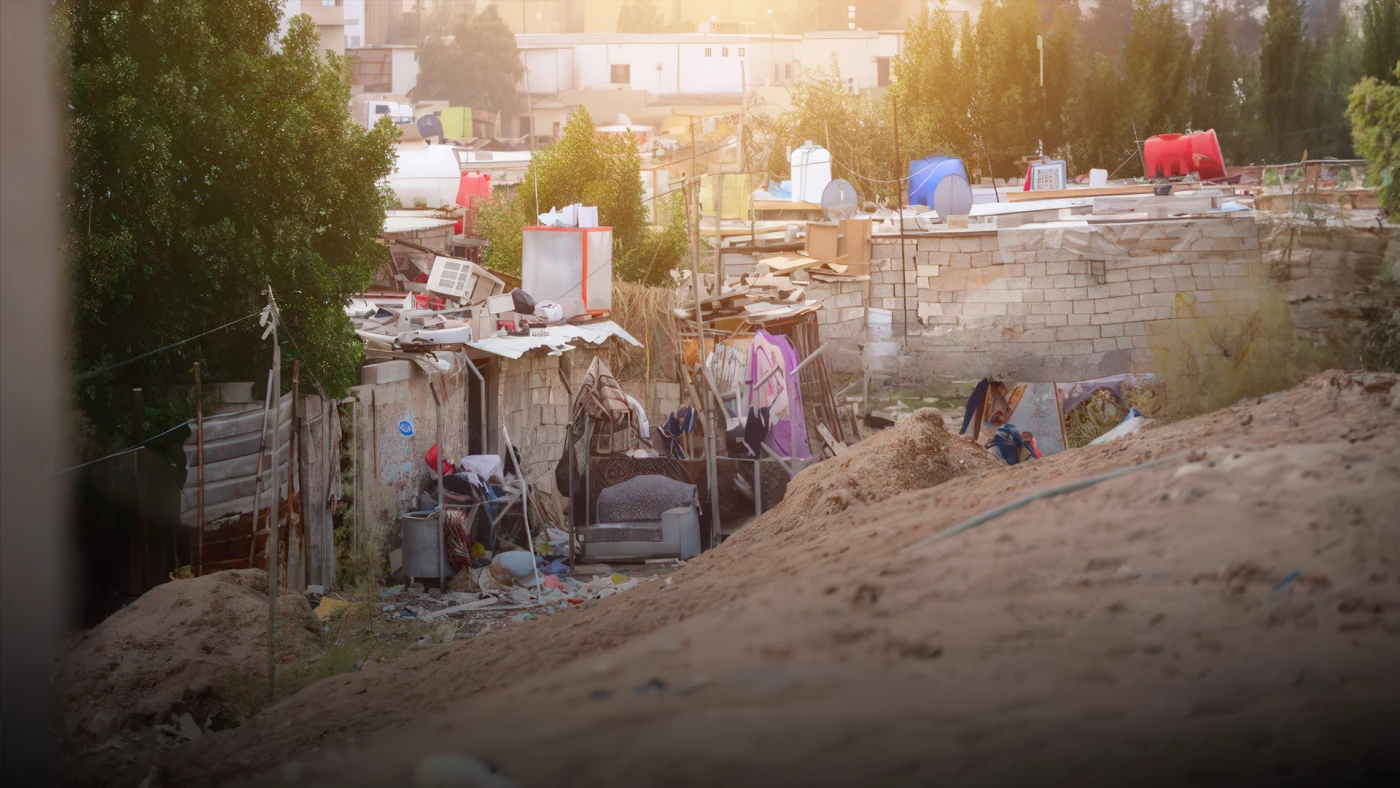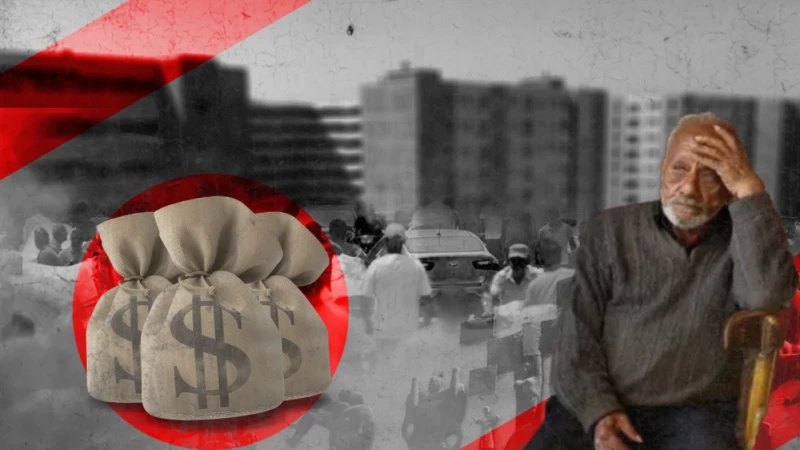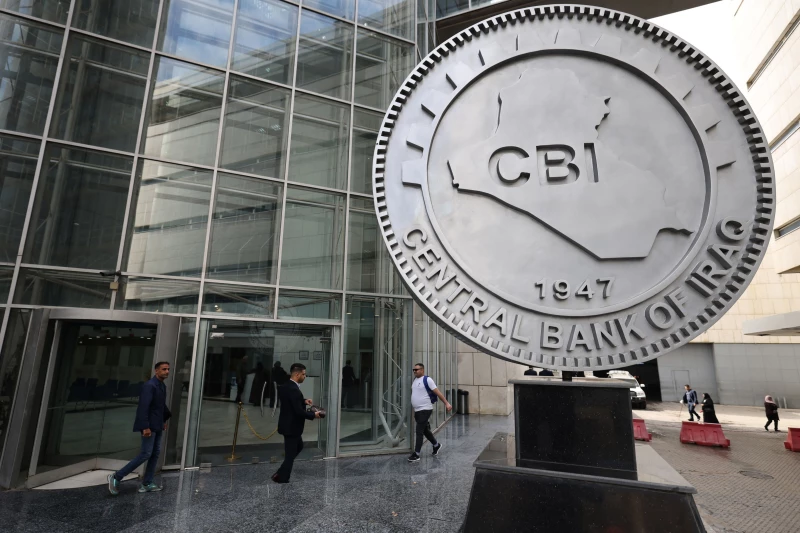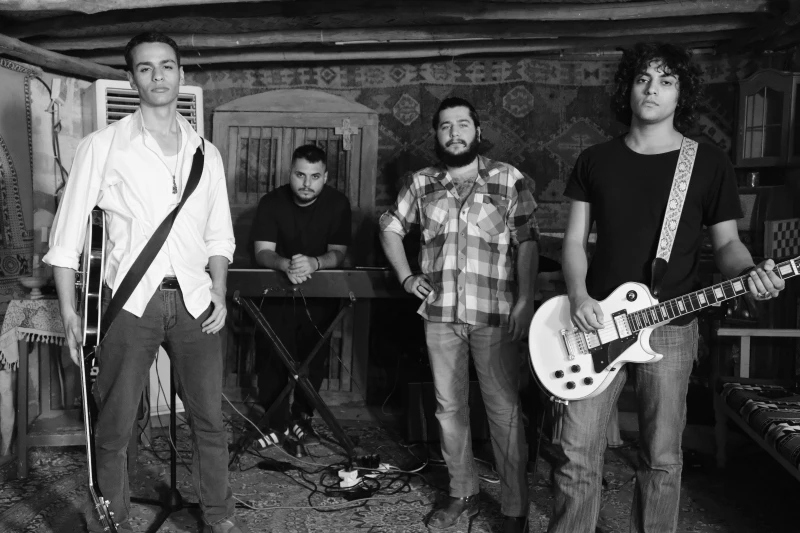Ali Jabbar, a 33-year-old food delivery worker, resides with his wife and two daughters in a small, unauthorized house on state-owned land in the Shafqat Al-Amel area of Al-Ma’qil, north of Basra. The house, comprising two bedrooms, a living room, a kitchen, and a bathroom, sits on a 100-square-meter plot that used to be a public park. Ali and his neighbors, who are also squatting on state land, have received final eviction notices from local authorities.
"I had no choice but to buy this house five years ago because it was affordable," Ali explains. "I hoped the state would eventually grant me ownership, as they have done in other areas. But now they're insisting I vacate, and I don't know what to do. The minimum rent in another area is 500,000 dinars (US$380), which is too much for me. I'm just a delivery worker with only a motorcycle, and my wife is a homemaker."
Decades of wars, crises, administrative chaos, and corruption have fueled the spread of informal settlements throughout Basra and other Iraqi provinces, including Baghdad. These homes, built illegally, lack basic infrastructure services.
Residents in these areas struggle with unreliable water supplies and frequent power outages. The absence of proper drainage systems exacerbates problems during rainy periods, often bringing life to a halt. Flooded streets filled with sewage and stagnant water can confine workers and students to their homes for days.
It doesn’t end there. Informal settlements also lack schools and health centers, compelling residents to travel long distances for basic services. This is a significant concern for delivery driver Ali, whose eldest daughter is set to start school next year. He worries about balancing his job with getting her to and from school. He adds with a sigh, "That's if we even get to stay in our home in Shafqat Al-Amel."
Official estimates indicate there are approximately 300,000 instances of encroachment on lands owned by the Basra municipality or on agricultural lands. In a 2023 press statement, former Basra Deputy Governor Mohammed Taher Al-Tamimi stated that around 100,000 of these encroachments are on land owned solely by the municipality.
Additionally, there are an estimated 200,000 encroachments on agricultural land in Basra. In Iraq, agricultural land is owned by the state (Ministry of Finance), and the law prohibits non-agricultural construction on it. Building residential units on such land is illegal.
According to Ministry of Planning spokesperson Abdul Zahra Al-Hindawi, Basra is home to over 700 informal housing settlements. This figure is part of a broader count of 4,600 such settlements identified across Iraq by the ministry.
Sources within Basra's local government report that those constructing illegal buildings include both local residents, who will be compensated upon eviction, and migrants from nearby provinces who have moved to Basra due to limited job opportunities and water shortages in their home regions.
The southern provinces neighboring Basra have long struggled with deteriorating infrastructure and scarce job opportunities, a result of failed and delayed projects over the past two decades. Rampant corruption has exacerbated the situation, with political parties dividing projects and embezzling funds by awarding contracts to inexperienced or fictitious companies, all in the absence of proper accountability and oversight mechanisms.
Sources in the Basra government describe Shafqat Al-Amel as one of the province's largest informal settlements. Originally, it was a public park established in 1961 by the Iraqi Ports Authority, now known as the General Company for Ports of Iraq.
The park was designed in a Chinese style and included a structure resembling a hat similar to those worn by port workers in Al-Ma’qil, which gave it the name Shafqat Al-Amel, in English "Worker's Hat."
Government project hurdles
A source from Basra Province summarized the issue of informal settlements, explaining that the unchecked construction of residential units over the decades has resulted in the creation of quasi-cities that lack essentials like electricity, water, sewage systems, and access to health and educational services. This has not only negatively impacted residents' lives but also posed a significant challenge for the state by obstructing strategic and service projects. "We are facing the dilemma of having to remove tens of thousands of encroachments before we can launch any projects," the source explained.
Basra Municipality Director Hassan Al-Najjar identifies two types of encroachments: residential and commercial. He says that all commercial encroachments, regardless of type, remain unaddressed, particularly in areas like Al-Ma’qil, including Shafqat Al-Amel, and other parts of Basra. These encroachments occur on both state-owned and private lands.
For residential encroachments, he explains they fall into two categories. The first category includes encroachments on green areas, such as Shafqat Al-Amel, originally a park and recreational space for the people of Basra. Once the local government approves, all such encroachments will be removed. Residents have received repeated warnings.
The second category involves encroachments on land earmarked for government projects. These too will be removed, especially on land reserved for future government projects, which will be cleared before implementation.
The Municipality Director has announced that numerous reconstruction projects are planned for the near future, some of which will occur in areas currently affected by encroachments. He reassured residents by stating, "We will provide alternative plots of land for Basra citizens. However, we will not permit individuals from other provinces to encroach on Basra's lands. They are welcome to settle here if they arrange their housing through renting or purchasing homes in the province; that poses no issue."
A source in the Basra Environmental Directorate, speaking on condition of anonymity, criticized the government's solutions for informal settlements as "patchwork." He attributes the root causes of these settlements to unemployment, poverty, and neglect by state institutions. Therefore, he believes the fundamental solution lies in tackling poverty and unemployment.
Commenting on the informal settlement of Shafqat Al-Amel, the source stated, "The lack of municipal services poses a health risk due to the accumulation of garbage and stagnant water, which fosters the spread of disease-carrying insects and rodents."
He expressed astonishment at the eviction notices issued to squatters, accompanied by "promises of rewards like alternative land distribution or statements that only properties on land designated for future projects will be cleared, while others await a government decision."
He added that such remarks from government officials "will likely encourage more encroachments on state property, particularly in the context of high unemployment and poverty rates."
Parties benefiting
Civil activist Alaa Al-Tamimi from Basra highlights the prevalence of informal settlements in the region, particularly in the Shafqat Al-Amel and City Center areas, as well as in various districts and sub-districts.
He argues that both local and central governments lack effective solutions to tackle the issue. The poor service conditions in these areas only worsen the situation. "These settlements harbor individuals who operate outside the law and pose a threat to community and national security," he noted.
"These informal settlements are rife with drug dealers and users of various substances, driven by poverty, unemployment, and a lack of security oversight."
Alaa believes the solution lies in the authorities constructing housing complexes and selling them to citizens through affordable installment plans. "For instance, apartments with two rooms and a living room would suffice for many families and would be a dream come true for them."
Due to political pressures since 2003, many green spaces in Basra, such as Shafqat Al-Amel, have been converted into informal housing areas because of a "lack of law and oversight," Alaa explains. "These areas, particularly Shafqat Al-Amel Park, were once recreational spots for Basra families. Now, they have become dumping grounds for garbage and waste."
Civil activist Ali Salman Al-Aqabi reports that in recent years, "backed entities", though he does not specify who they are, have taken control of Shafqat Al-Amel, transforming it into an informal housing area for people from both Basra and other places. He asserts that the local government has been largely ineffective in addressing this issue.
He claims these entities have seized large areas of land in Basra, subdivided them, and sold them to citizens as residential plots without proper documentation.
"The security chaos in the country and the influence of armed groups over Iraq's affairs, especially in Basra, have led to the illegal seizure and sale of a huge number of properties," he says. "This has created unregulated neighborhoods that lack essential services."
Housing prices within reach
Abu Nour, owner of Al-Zahid Real Estate Office in the Al-Ma’qil area, notes that residential units outside informal settlements range from 1.75 million to 2 million dinars per square meter (approximately $1,332 to $1,523). A 100-square-meter house can therefore cost up to 200 million dinars ($152,000).
In informal settlements like Shafqat Al-Amel, prices are significantly lower. A 200-square-meter house costs between 30 and 40 million dinars (approximately $22,800 to $30,400), while a 100-square-meter house ranges from 10 to 15 million dinars (approximately $7,600 to $11,400), according to Abu Nour.
He explains that many citizens opt to buy homes in Basra's informal settlements because they cannot afford the high prices in other areas. Additionally, there is an influx of people from other provinces into Basra.
"Rather than renting a property for three million dinars a year, people prefer to buy a home in an informal area for around ten million dinars," he says. "They expect to live there for many years, hoping to eventually gain ownership or face eviction. For many, it’s a better option than renting."
Mohammed Saad, a 40-year-old worker at the Basra electricity department, lives in Shafqat Al-Amel in the Al-Ma’qil area with his wife and three children. He explains that he grew up with his three siblings in their family home in Al-Ma’qil, but as they married and started their own families, the house became too crowded.
After getting married, he purchased a home in Shafqat Al-Amel, despite it being an illegal construction. "The house isn’t really fit for purpose because of the lack of services," he says. "In the winter, when it rains, we struggle to leave because the area floods with stagnant water. But I had no other choice; I couldn’t afford anything better."
Stagnant water and rain pose significant dangers, especially to children, as the area isn't connected to the main electricity grid. "Residents have improvised, bringing in electricity through unsafe, makeshift wires from distant areas," he explains. "This has led to repeated electrocution accidents, claiming the lives of children."
He says that residents are urgently appealing to both local and central governments for solutions to alleviate their suffering, particularly since most of them are poor. "Instead of offering assistance, the authorities send demolition notices and threaten to tear down our homes," he says.
Mrs. Umm Ahmed, a 44-year-old seamstress, supports her government-employed husband and their five children. "Buying a proper house in a regulated area is a dream for us, and it might not come true for decades. That's why we bought our small house in Shafqat Al-Amel," she explains.
"Instead of recognizing our difficult circumstances and providing the necessary services to improve our lives, the government threatens to evict us and leave us and our children homeless," she continues. "We don't know what to do or what will happen to us if they start the demolitions."
Informal settlements: Overlooked communities
Social researcher Riad Attia Al-Shihabi identifies several factors driving people to live in informal settlements. These include population growth without corresponding housing projects, an influx of job seekers from other provinces, and the low cost of property due to unofficial ownership. "Proper safety and construction standards are not followed, and lower-quality building materials are used," he says.
Writer Salah Mishaal Sameer highlights the significant negative impacts of informal settlements on their surroundings. Due to their illegitimate construction and exclusion from municipal planning, including water, sewage, electricity, health, and education services, these areas become sources of pollution. Waste accumulates, sewage and rainwater collect in unpaved roads, and there are no schools or health centers, let alone recreational spaces.
He highlights that the impoverished conditions of these residents lead to high crime rates, particularly involving drug activity. "Gangs are active and often recruit local youths," he warns, emphasizing the significant threat to societal stability.
Sameer points out the deeper issues stemming from deprivation. "Residents of these areas often feel neglected by the government, which leads to feelings of discrimination. Extreme poverty fosters resentment towards residents of more affluent areas, further widening the societal divide."
He continues, "These settlements are largely ignored, and the residents survive on whatever resources they can cobble together, including makeshift water and electricity supplies."
Mohammed Saleh Hussein, a 45-year-old married father of four, lives in an informal housing complex in southern Basra. He criticizes the state for failing to deliver on its promises to provide alternatives to these settlements, such as constructing low-cost housing complexes, allocating land, or offering adequate monetary compensation.
Hussein urges the government to grant ownership of the properties to current residents or to establish lease-like contracts that would allow them to use the land for a specified number of years under certain conditions, including adherence to building standards. "This would be a better solution than evicting us and demolishing our homes, which would only create additional crises," he argues.
Abu Zainab, a 47-year-old gas cylinder vendor, resides in a small home in the Shafqat Al-Amel area with his wife and six children. He recounts that he was compelled to build his house there years ago without government approval.
He acknowledges that, like hundreds of his neighbors, his home sits on state-owned land that could be reclaimed at any moment. "I know this is an encroachment, but I had no choice. The state failed to provide me with a job, even one with long hours, that would have given me enough income over 30 years to build a proper house," he explains.
Raising his voice, he insists, "No one can take away my humble home unless they provide us with an alternative. My family needs shelter from the harshness of life and the injustice we've endured and continue to face."
* This feature was produced in collaboration with the Network of Iraqi Reporters for Investigative Journalism (NIRIJ)



 Facebook
Facebook
 LinkedIn
LinkedIn
 Telegram
Telegram
 X
X


